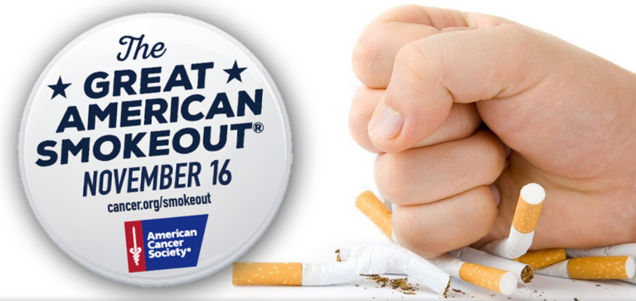The Great American Smokeout is November 16.
- Enfermedades del Corazón en Adultos
- Enfermedad de la válvula aórtica
- Enfermedad de las Arterias Coronarias
- Enfermedades de la Válvula Mitral
- Enfermedad de la Válvula Tricúspide
- Trastornos del Ritmo Cardíaco
- Aneurisma de la Aorta Torácica
- Disección Aórtica
- El Dispositivo de Asistencia Ventricular Izquierdo (DAVI)
- Fibrilación Auricular (FA)
- OMEC VA
- La insuficiencia cardíaca
- Trasplante de corazón en adultos
Diseases of the arteries, valves, and aorta, as well as cardiac rhythm disturbances - Pediátrica y Cardiopatías Congénitas
- Comunicación interauricular
- Comunicación interventricular
- Tetralogía de Fallot
- Defecto del canal auriculoventricular
- Transposición de las grandes arterias
- Coartación de la aorta
- Tronco arterial común
- Defectos de ventrículo único
- Persistencia del conducto arterioso
- Trasplante de corazón en pacientes pediátricos
- Trasplante de pulmón en pacientes pediátricos
Heart abnormalities that are present at birth in children, as well as in adults - Pulmón, esófago, y otras enfermedades del pechoDiseases of the lung, esophagus, and chest wall
- ProceduresCommon surgical procedures of the heart, lungs, and esophagus
- Pre- y Post- Cuidado Operativo
- Antes de la cirugía de corazón
- El día de la cirugía de corazón
- Después de la cirugía de corazón
- Antes de la cirugía de cáncer de pulmón
- El día de la cirugía de cáncer de pulmón
- Luego de la cirugía para el cáncer de pulmón
- Antes de la cirugía para cardiopatías congénitas
- El día de la cirugía para cardiopatías congénitas
- Después de la cirugía para cardiopatías congénitas
How to prepare for and recover from your surgery
Title
The Great American Smokeout is November 16.
The Smokeout—sponsored by the American Cancer Society—encourages the almost 45 million smokers in the US to stop smoking cigarettes for 24 hours or to use the day to make a quit plan.
Why Should I Quit Smoking?
According to SmokeFree.Gov, quitting smoking can help most of the major parts of your body, such as:
- Quitting smoking can re-wire your brain and help break the cycle of addiction.
- Smoking is the leading cause of heart attacks and heart disease. But many of these heart risks can be reversed simply by quitting smoking. Quitting can lower your blood pressure and heart rate almost immediately. Your risk of a heart attack declines within 24 hours.
- When you quit smoking, your blood will become thinner and less likely to form dangerous blood clots. Your heart will also have less work to do, because it will be able to move the blood around your body more easily.
- Quitting smoking will not get rid of the fatty deposits that are already there. But it will lower the levels of cholesterol and fats circulating in your blood, which will help to slow the buildup of new fatty deposits in your arteries.
- Scarring of the lungs is not reversible. That is why it is important to quit smoking before you do permanent damage to your lungs. Within two weeks of quitting, you might notice it’s easier to walk up the stairs because you may be less short of breath. Don’t wait until later; quit today!
- There is no cure for emphysema. But quitting when you are young, before you have done years of damage to the delicate air sacs in your lungs, will help protect you from developing emphysema later.
- Quitting smoking will prevent new DNA damage from happening and can even help repair the damage that has already been done. Quitting smoking immediately is the best way to lower your risk of getting cancer.
A Quit Plan
Quitting smoking can be hard, so a good plan can make all the difference. The US Centers for Disease Control and Prevention (CDC) suggests:
- Set a quit date. Choose the Great American Smokeout or another quit day within the next 2 weeks.
- Tell your family and friends about your quit plan. Share your quit date with the important people in your life and ask for support. A daily phone call, e-mail, or text message can help you stay on course and provide moral support.
- Be prepared for challenges. The urge to smoke is short—usually only 3 to 5 minutes. Even one puff can feed a craving and make it stronger. So be ready with healthy ways to cope with urges: Drink water; Take a walk or ride your bike; Listen to a favorite song or play a game; Call or text a friend.
- Remove cigarettes and other tobacco from your home, car, and workplace. Throw away your cigarettes, matches, lighters, and ashtrays. Clean and freshen your car, home, and workplace. Old cigarette odors can cause cravings.
- Talk to your pharmacist, doctor, or quitline coach about quit options. Nicotine patches, gum, or other approved quit medication can help with cravings.
Help!
Free help is available at 1-800-QUIT-NOW (1-800-784-8669) and at 1-855-DÉJELO-YA (1-855-335-3569) (for Spanish speakers). Or, get 24/7 help with a Smokefree app for your smartphone: quitSTART and QuitGuide are two good options.


